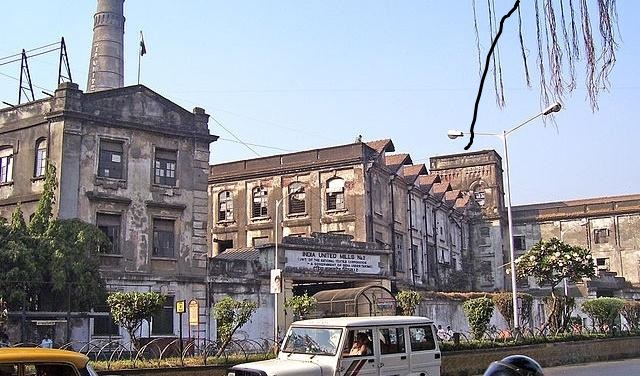MUMBAI TEXTILE MUSEUM KALACHOWKI BYCULLA EAST BRIHANMUMBAI MUNICIPAL CORPORATION PUBLIC-PRIVATE PARTNERSHIP CSR INDIA UNITED MILLS HERITAGE URBAN REGENERATION INDUSTRIAL LEGACY EXPRESSIONS OF INTEREST BMC CULTURAL LANDMARK MUSEUM DEVELOPMENT NATIONAL
MUMBAI, MAHARASHTRA, INDIA
By IFAB MEDIA - NEWS BUREAU - July 4, 2025 | 223 3 minutes read
Mumbai’s civic body has invited Expressions of Interest (EOIs) from public sector firms, charitable trusts, and private investors to help develop and maintain the long-pending Textile Museum at Kalachowki in Byculla East. Envisioned as a tribute to the city’s textile heritage, the project—estimated at ₹100 crore—will rely on Corporate Social Responsibility (CSR) contributions or direct investment to move forward.
Spread across 44,000 sq. metres in the historic India United Mills No. 2 and 3 compound, the museum is being developed in three phases. Phase 1, covering 7,000 sq. metres, has already seen the creation of an amphitheatre, textile-themed murals, a souvenir shop, and a multimedia musical fountain. Some components of Phase 2, such as parking and public amenities, are also underway.
The final phase will be the most significant, converting 37,000 sq. metres into a full-fledged museum featuring an auditorium, art gallery, library, heritage plaza, and archival spaces. The BMC has proposed a 20-year development and maintenance agreement with the selected partner, while it retains regulatory control. A historian will be appointed to guide the curation of the mill’s legacy, and an underwater structural audit of the site’s basements will be conducted to assess their heritage value.
The project has faced delays due to shifting priorities and funding challenges, especially during the COVID-19 pandemic. However, civic officials are optimistic that the new PPP model will attract long-term collaborators. “We’re seeking sustainable partnerships that align with heritage conservation and can deliver on operational excellence,” said a BMC official.
The Kalachowki precinct, nestled between Byculla and Parel, is one of Mumbai’s oldest mill zones. Urban planners believe the museum could play a key role in heritage-led regeneration and help preserve Mumbai’s industrial past. Conservationists have welcomed the move, urging that commercial goals not override the integrity of the site’s legacy.
Designed with sustainability at its core, the project will feature solar lighting, rainwater harvesting, green landscaping, and accessible pathways. It also aims to become an educational and cultural hub for students, researchers, and artists alike.
EOIs must be submitted by July 28. If executed successfully, the Kalachowki Textile Museum could become a landmark example of how urban heritage can be revived through inclusive, environmentally conscious development.









